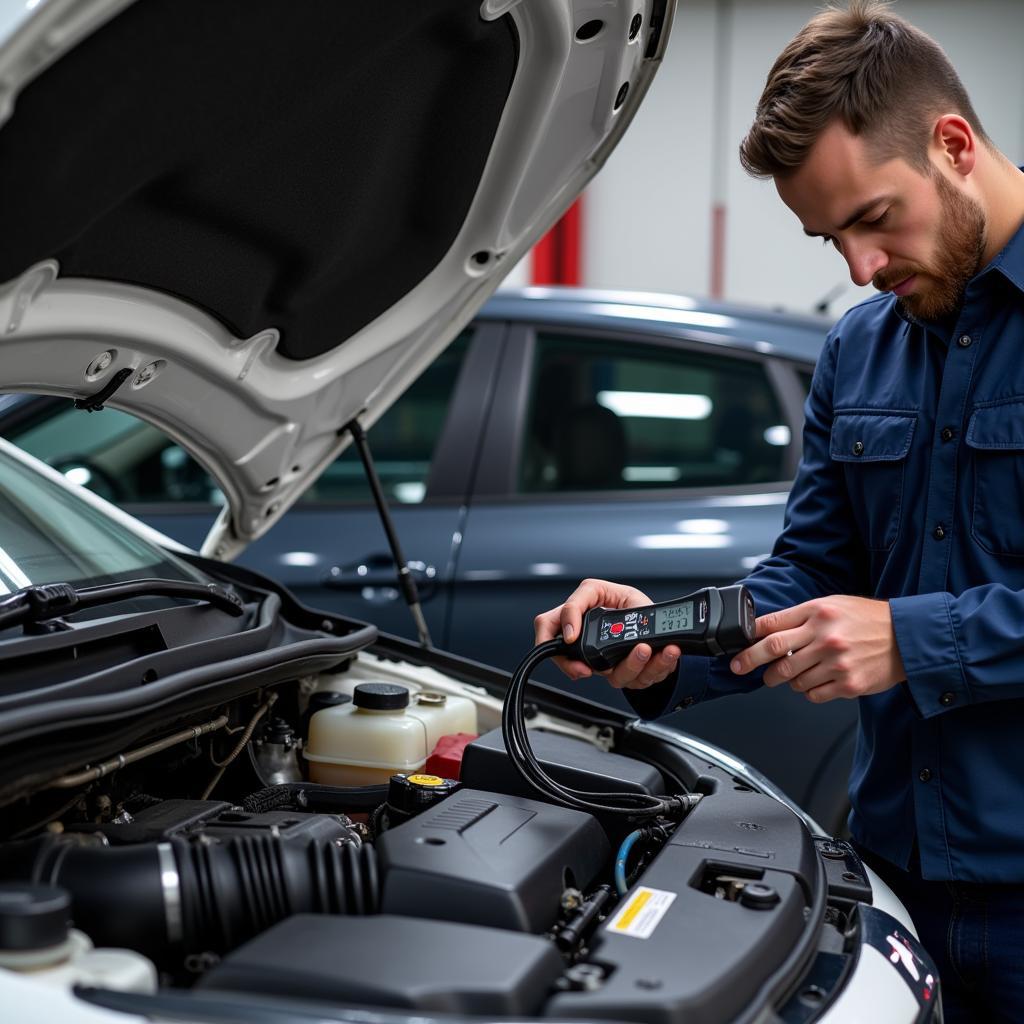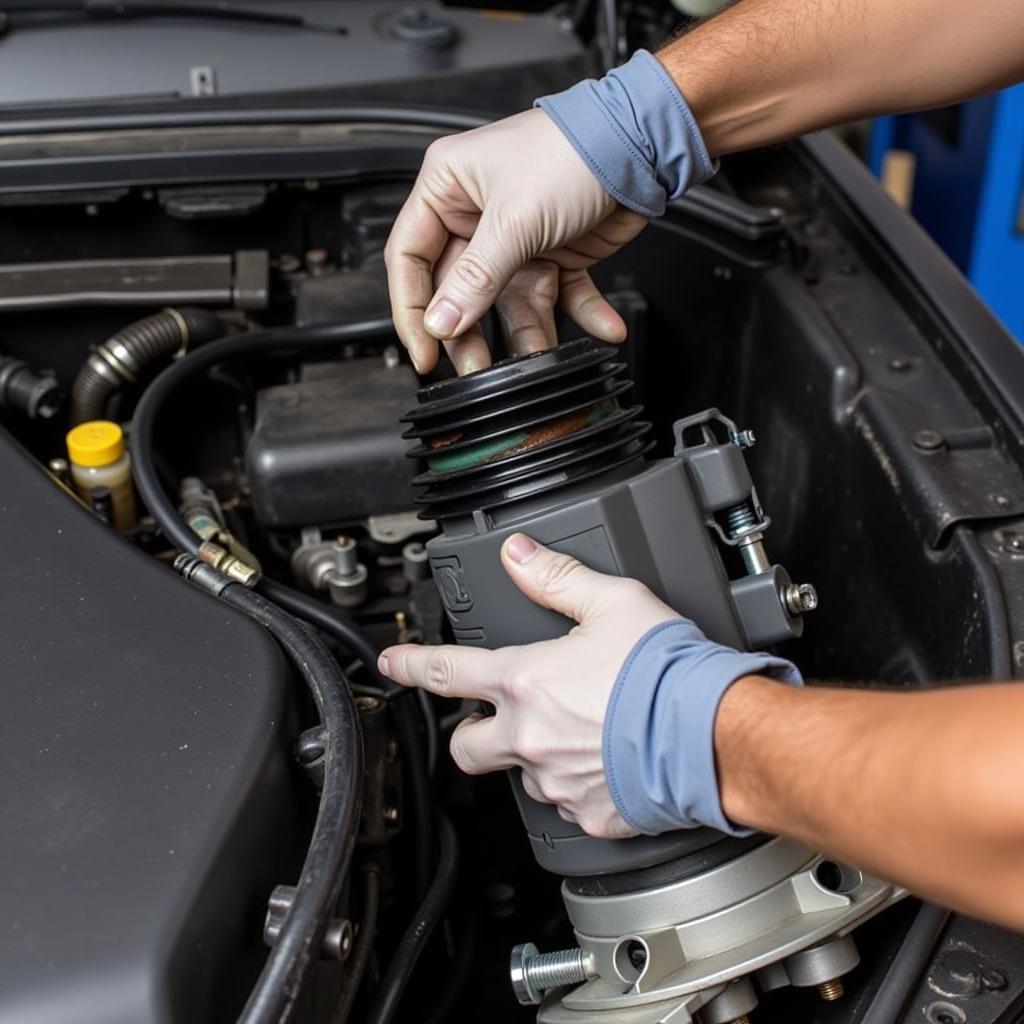Bad gas can wreak havoc on your car, leading to a range of issues from poor performance to complete engine failure. Understanding the impact of contaminated or old fuel is crucial for every car owner. This article delves into the various problems bad gas can cause and offers solutions to help you avoid costly repairs.
Fuel injectors can become clogged, leading to a rough idle and reduced fuel efficiency. In some cases, bad gas can also damage the fuel pump, which is responsible for delivering fuel from the tank to the engine. Furthermore, contaminated fuel can negatively impact the catalytic converter, a crucial component for emissions control.
How Bad Gas Affects Your Engine
Bad gas can manifest itself in several ways. One common symptom is difficulty starting the car. If your car is struggling to turn over, especially after refueling, bad gas could be the culprit. Another telltale sign is a decrease in fuel efficiency. If you notice you’re filling up more often than usual, it’s worth investigating the quality of your fuel.
Identifying Symptoms of Bad Gas
Other symptoms of bad gas include:
- Rough idling: The engine may vibrate excessively or stumble when idling.
- Hesitation or surging: You might experience a lag in acceleration or sudden bursts of power.
- Increased emissions: Bad gas can cause black smoke to come out of the exhaust pipe.
- Illuminated check engine light: The check engine light can be triggered by various issues, including problems related to bad gas, like a car o2 sensor problems.
“One of the most overlooked problems is the use of old gasoline,” says automotive expert, Michael Stevenson. “Gasoline can degrade over time, losing its combustibility and causing performance issues.”
Preventing Problems Caused by Bad Gas
There are several steps you can take to prevent problems associated with bad gas. First, choose reputable gas stations known for quality fuel. Avoid stations with unusually low prices, as this could be an indicator of lower quality. Second, consider using a fuel stabilizer, especially if you store your car for extended periods. This helps prevent the gasoline from degrading.
Maintaining Your Fuel System
Regular maintenance is also crucial. Keeping your fuel filter clean can prevent contaminants from reaching the engine. Additionally, have your fuel system inspected periodically by a qualified mechanic. Addressing potential issues early on can save you from more expensive repairs down the line.
 Regular Fuel System Maintenance Simple precautions, such as using quality fuel and maintaining your car’s fuel system, can help extend the life of your car’s components.
Regular Fuel System Maintenance Simple precautions, such as using quality fuel and maintaining your car’s fuel system, can help extend the life of your car’s components.
What to Do If You Suspect Bad Gas
If you suspect you have bad gas in your tank, the first step is to stop driving the car. Continuing to drive with contaminated fuel can worsen the damage. Next, have the fuel drained from the tank by a qualified mechanic. This may also involve cleaning or replacing the fuel filter and other affected components. It might also lead to needing to check if you have sensors problems cars.
“Draining the fuel tank is often the best course of action,” advises automotive engineer, Sarah Johnson. “This ensures the contaminated fuel is completely removed, preventing further damage to the engine.”
Repairing Damage Caused by Bad Gas
Depending on the extent of the damage, repairs may include cleaning or replacing the fuel injectors, fuel pump, and catalytic converter. In severe cases, engine damage may occur, requiring costly repairs. Don’t forget that a car not starting first time problem can be a consequence of bad gas, too.
Remember, prevention is always better than cure. Choosing the right fuel and maintaining your car’s fuel system can save you time, money, and frustration in the long run. If you are looking for a used cars no credit no problem situation, it’s essential to pay attention to the car’s history and potential issues, including past experiences with bad gas. For those wondering about diesel engines, you can learn more about their specific challenges in our article is there a problem with diesel cars.
Conclusion
Bad gas can cause a multitude of problems for your car, ranging from minor performance issues to significant engine damage. By understanding the signs of bad gas and taking preventative measures, you can protect your car and avoid costly repairs. Remember, choosing quality fuel and regular maintenance are key to keeping your car running smoothly. Contact AutoTipPro at +1 (641) 206-8880 or visit our office at 500 N St Mary’s St, San Antonio, TX 78205, United States for further assistance or to schedule a consultation. We are here to help you keep your car in top condition.





Leave a Reply